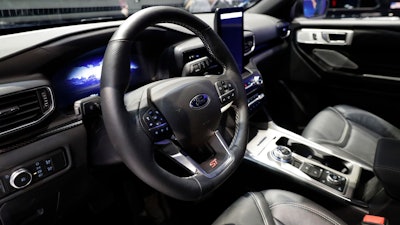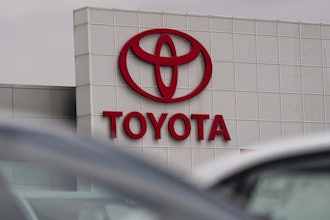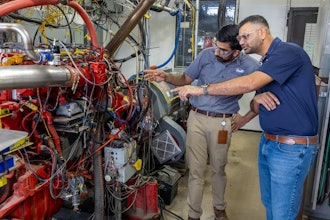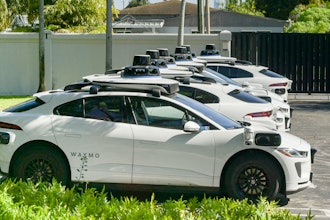
Ford Motor Co. has launched an investigation into whether it overstated gas mileage and understated emissions from a wide range of vehicles.
The company said Thursday that in September, a group of employees reported possible problems with a mathematical model used to calculate pollution and mileage, prompting the company to hire an outside firm to run tests. Testing will start with the 2019 Ford Ranger small pickup truck, and if problems are found, the company will start looking at models dating to 2017.
Ford said it has no evidence yet that mileage or pollution numbers are wrong, but the investigation has just started. The company says it's too early to tell how many and which models might be involved.
Depending on what is found, Ford could be required to restate the mileage on EPA-approved window stickers as well as reimburse owners for the mileage difference. The company could also face penalties from the government agencies.
"At Ford, we believe that trust in our brand is earned by acting with integrity and transparency," Kim Pittel, the company's vice president for environment and safety engineering, said Thursday. "We have a process for looking at how we perform and behave in our broad and complex company."
The U.S. Environmental Protection Agency and the California Air Resources Board, which monitor emissions and mileage, have been informed of the probe, according to the company.
The EPA said in a statement that Ford disclosed the issues on Tuesday. "The investigation is ongoing and the information is too incomplete for EPA to reach any conclusions," the agency said. "We take the potential issues seriously and are following up with the company to fully understand the circumstances behind this disclosure."
The problems do not involve "defeat device" software that activates pollution controls for emissions tests and turns them off on the road, according to Ford. For years, Volkswagen used a defeat device to cheat on diesel emissions tests until they were caught by university researchers and a nonprofit organization. Ford said the investigation is focused on vehicles with gasoline engines.
In an interview, Pittel said it's too early to tell how widespread the problem is or if it goes beyond 2017 models. "We're just going to go where the investigation takes us," she said. "We will be very, very thorough."
Most emissions and mileage tests are done by automakers and spot-checked for accuracy by the EPA and California. The tests are done on a dynamometer, which is a treadmill-like device, and the mathematical model makes calculations for "road load," which is drag from wind, tire rolling resistance, drag from engine-driven devices and other factors.
"We have identified potential concerns with how we calculate road load," Pittel said.
If problems are found, it won't be the first time Ford has had to restate mileage. In 2014, the Dearborn, Michigan, company had to cut the window-sticker mileage on six models, and had to pay thousands of dollars to more than 200,000 owners after errors were discovered in how the mileage was calculated. The company said the latest issues are unrelated to the 2014 problems. Ford also had to restate mileage on the C-Max gas-electric hybrid in 2013.
The Ford cases came after a 2012 EPA investigation found inflated mileage on 13 Hyundai and Kia models, affecting 900,000 vehicles.
Because Ford found out about the problem in September, it made calculations and probably knows it has problems with the tests, said Navigant Research analyst Sam Abuelsamid, who closely follows auto engines and transmissions.
"I don't think that they would be making a statement like this at this point if they didn't already know there was a problem," Abuelsamid said. "It definitely implies that there's an issue there."
The EPA, Abuelsamid said, changed the testing guidelines for emissions and fuel economy in 2017, which could be why Ford said it will look at models from that year.






















